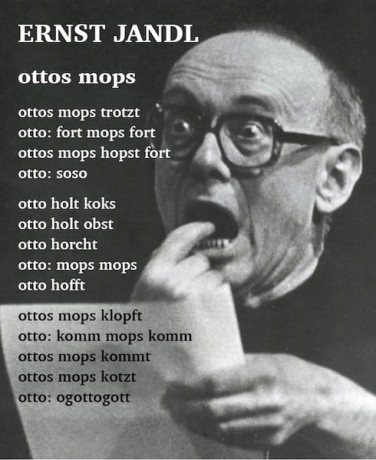Jandl became famous above all for his concrete poetry: poems that become images through graphic design or onomatopoeic forms of language that have an acoustic effect – from curious wordplay such as ‘Ottos Mops’ to the oppressive ‘Schtzngrmm’, an acoustic representation of the war front he experienced during the Second World War. What all his works, both experimental and classical, have in common is that they focus on language itself in its richness of form and meaning.
From the text of the certificate awarding the Georg Büchner Prize to Ernst Jandl in 1984: ‘Like no other, he has succeeded in expressing both the involuntarily comical and the deeply desperate aspects of our present existence, while at the same time reminding us that what matters most in literature is the sound of words.’
Discover the variety of the artist Ernst Jandl
Ernst Jandl | Works
Jandl's works in the ULB
Klare gerührt
Artist's book by Kasia Lewandowska with texts by Ernst Jandl
The official German Author website of his publisher Luchterhand offers a wide range of information, text and audio samples, and videos.










